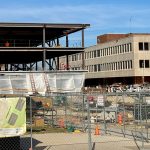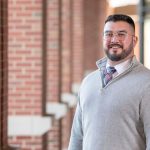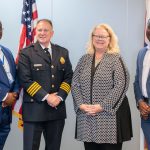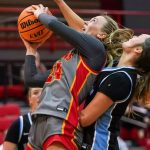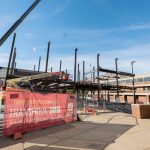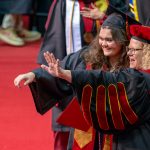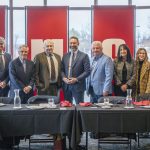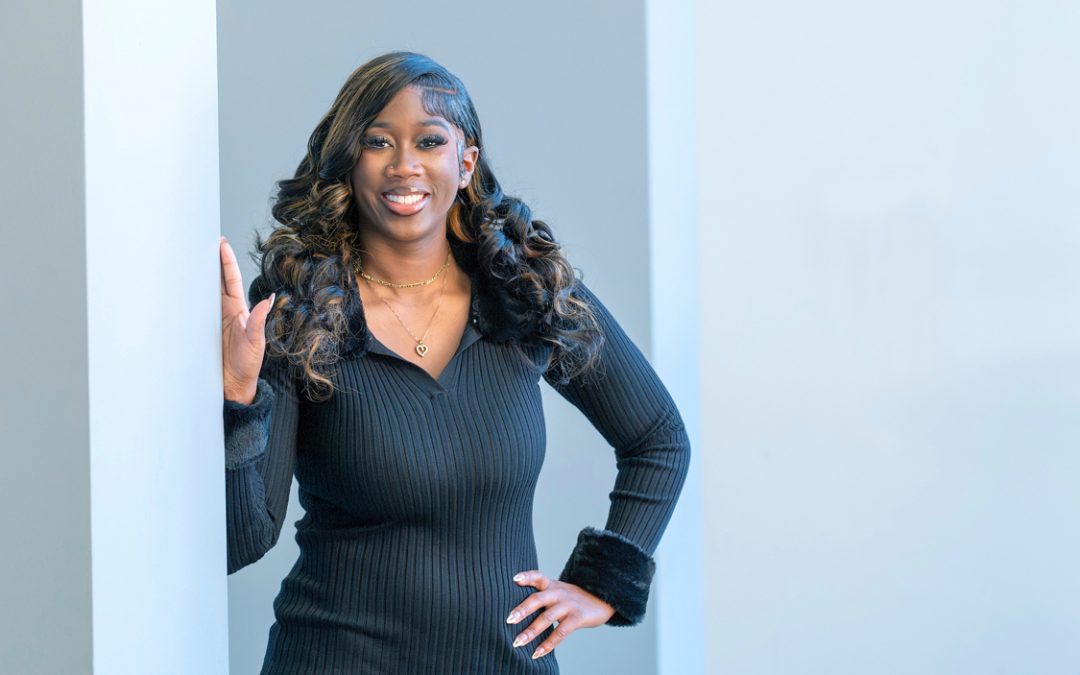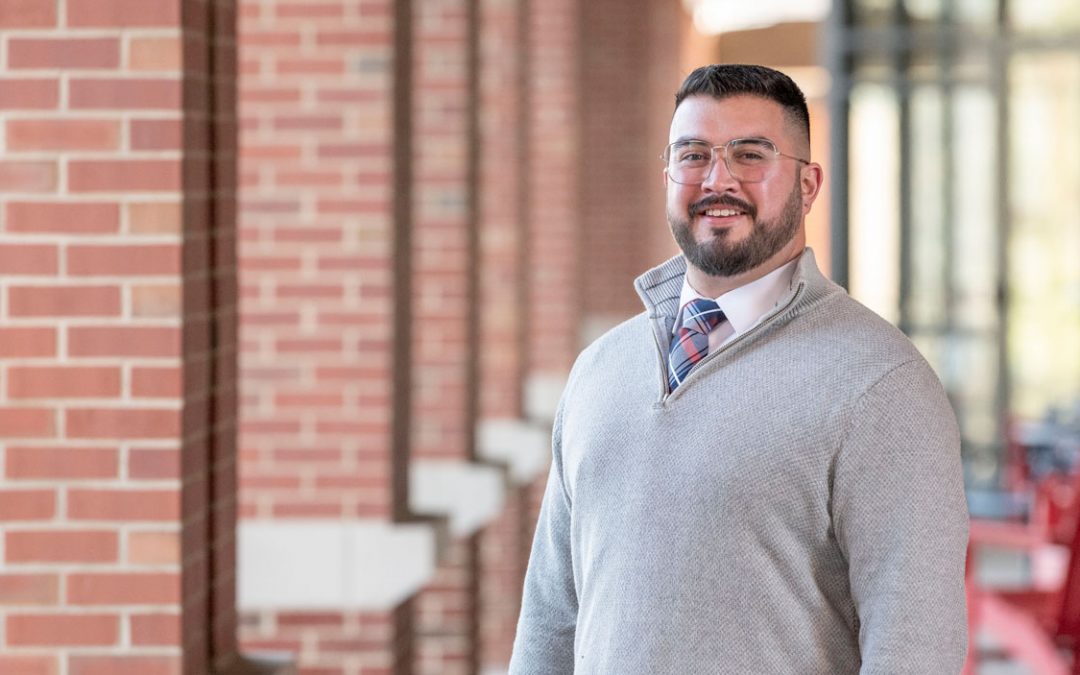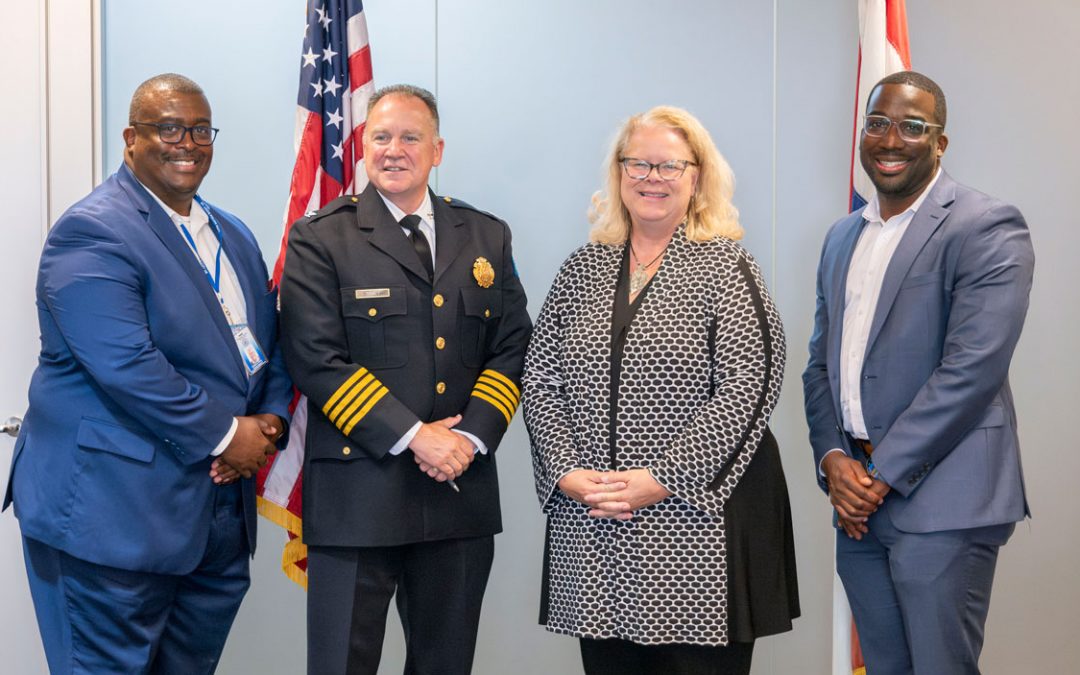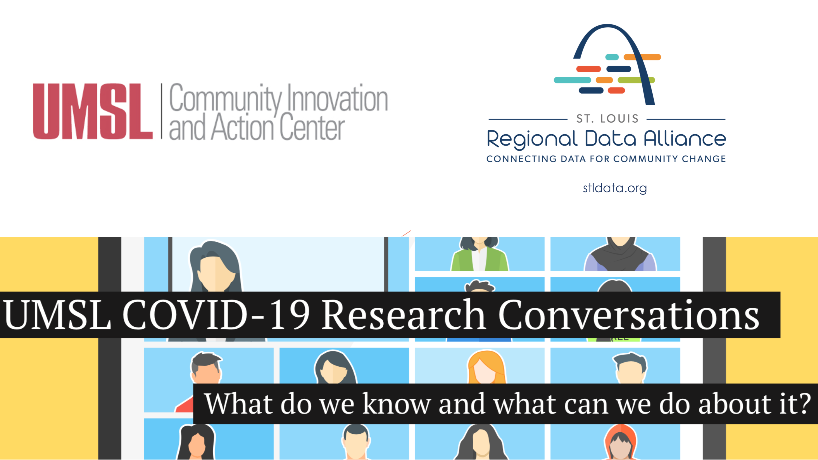
Representatives from the Community Innovation and Action Center and the St. Louis Regional Data Alliance discussed how UMSL’s partnerships with community organizations support St. Louis area businesses and residents during the COVID-19 pandemic.
The University of Missouri–St. Louis’ mission to support its local community has become increasingly crucial in the last few months.
On Friday, around 30 faculty members connected via Zoom for a webinar titled “Impacts of COVID-19 on Communities and Discussion of Responsive Applied Research.” The presentation, part of weekly UMSL COVID-19 Research Conversations sponsored by the Office of Research Administration, was led by Kiley Bednar, interim co-director of the Community Innovation and Action Center; Ben Cooper, health and community data scientist at the St. Louis Regional Data Alliance; Karl Guenther, assistant vice chancellor of economic and community development; Burnea Lester, evaluation and learning manager at CIAC; and Paul Sorenson, interim co-director of CIAC and director of RDA.
The presentation began with an overview of how UMSL serves as a valuable resource for business and residents in North St. Louis County by supporting economic development, education, housing, community services and health services.
“The pandemic highlighted the need for partnership in the St. Louis region,” Bednar said.
Guenther pointed out that the pandemic has taken a deep toll on the economy and other areas.
“The number of those employed in small businesses is dramatically down from pre-COVID levels,” Guenther said. “But even if you are able to maintain a job, the number of hours being worked is down.”
For many people, paying bills such as rent and utilities is a big concern. Small businesses struggle with decreased revenue and, because the amount of local sales taxes has decreased, public services are negatively affected.
The group’s discussion also covered the pandemic’s effect on education with many students being unable to maintain a connection with education or remain involved with school activities.
“This pandemic is not treating the community fairly,” Guenther said. “It has different impacts on people of color and low-income communities, both on the health side and on the economic side.”
Partnerships between UMSL and community organizations have provided laptops for students, helped businesses access stimulus funds, assisted with COVID-19 contact tracing and more.
The webinar highlighted the RDA’s efforts during the coronavirus pandemic. The group created a dashboard to distribute information and resources related to the virus. A partnership between the St. Louis County Department of Public Health, Missouri Institute of Mental Health, Washington University in St. Louis and RDA utilizes REDCap to conduct contact tracing to monitor the spread of COVID-19.
The webinar concluded with a question and answer session focusing on research opportunities. Possible areas for study include:
- How to keep students engaged with education
- Weaknesses in social support systems
- Effective data acquisition and sharing
- Collaborations on police reform
- Connecting people to resources and services
- How to address the digital divide



